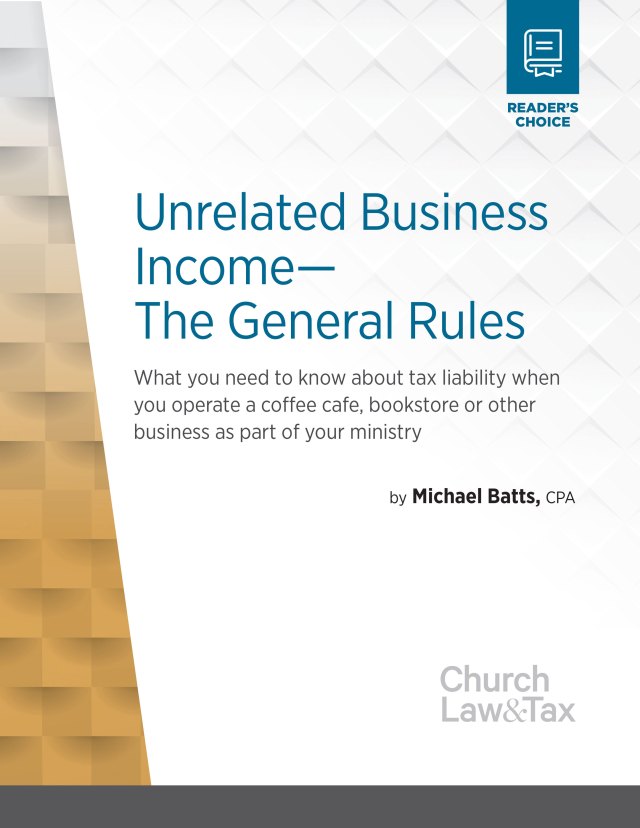IRS Letter Ruling 9718034
Key point. Income generated from the sale of goods produced by a charity's vocational training program are not necessarily subject to the unrelated business income tax.
The IRS ruled that income generated by a charity from various "vocational training" programs was not subject to the unrelated business income tax (UBIT).
A charity operates a residential program for troubled boys ages 12 through 18. Children are referred to the charity by government agencies and school districts. The charity provides both academic and limited vocational training, both of which it considers essential to its goals of developing improved social skills, more meaningful interpersonal relationships, and the development of self control, honesty, and self—esteem. Staff members provide individual, group, and vocational therapy for the residents.
The charity is located on a farm which serves as a training ground for residents. It also provides residents with opportunities to learn the basics of various trades and crafts, including automotive and heavy equipment repair, printing, and upholstery. Vocational training is secondary to the primary goal of social reintegration into the community. Most residents have never been employed.
In order to give residents retail sales experience and other work—related experiences, the organization proposes to erect a shed alongside a highway which crosses its property, and to conduct in that facility the following three activities using residents who would be paid minimal wages and who voluntarily agree to participate: (1) sales of produce from farming activities; (2) sales of furniture built by students; and (3) operation of a golf driving range. Each activity will charge prices competitive with for—profit businesses in the area, although anticipated profits will be minimal. The primary goal of these sales operations is to give residents the experience of operating a business, to learn general business principles and judgment, and to enhance their social skills in a public environment. The charity will employ no special personnel for this program.
The charity asked the IRS if the earnings from these activities would be subject to the unrelated business income tax (UBIT). The IRS said no. It noted that an "unrelated trade or business" is any trade or business of an exempt organization that is not substantially related (aside from the need of such organization for income) to the organization's exempt functions. The IRS noted that the income tax regulations specify that a trade or business is related to exempt purposes when the conduct of the business activity has a direct and substantial relationship to the achievement of an exempt purpose, and contributes importantly to the accomplishment of those purposes.
The IRS concluded that the charity's proposed activities "are being undertaken to further the goals of the existing programs for residents, and not for the production of income. The proposed activities are a natural extension of existing programs for residents. The scale of the operations is no larger than is necessary for the organization to accomplish its charitable purposes. This is evidenced by the fact that the individuals providing labor for these facilities are residents who are employed as part of your rehabilitation program, and your staff. Supervision will be provided by members of your staff who will not receive additional pay for performing this duty." Therefore, income generated from the sale of products is not subject to UBIT.



